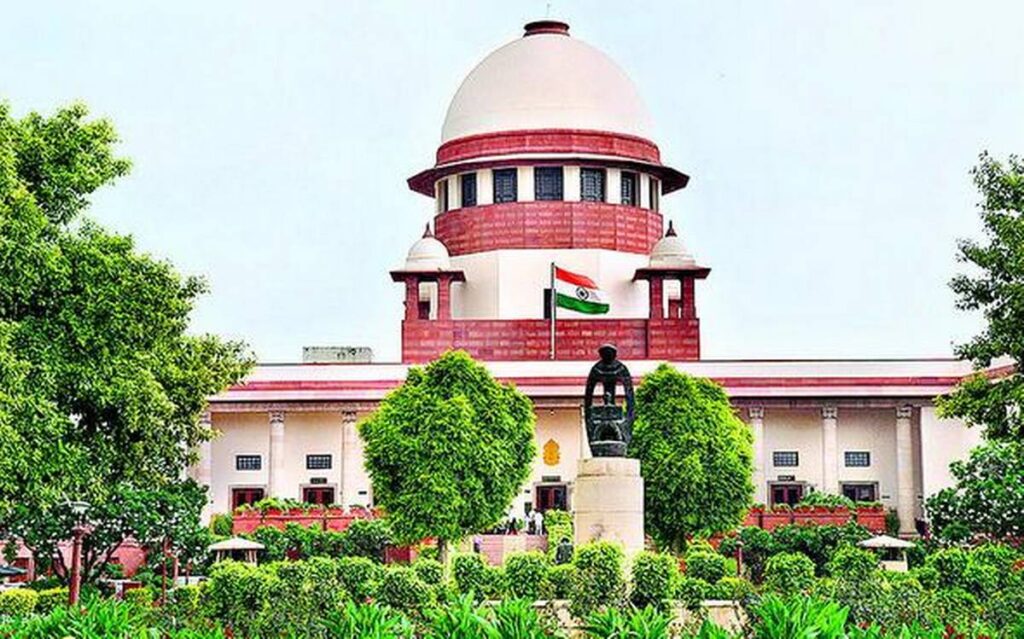
The Supreme Court of India has recently remarked that imposing inadequate sentences on convicts could undermine the public’s confidence in the legal system. The Court has stated that sympathy towards the convict should not come at the cost of justice and that a punishment should be adequate to serve as a deterrent to future offenders.
The Supreme Court has emphasized that the justice system exists to serve society and not just the offender. Therefore, a sentence that is too lenient can lead to a lack of public confidence in the legal system. The Court has observed that the public may view the justice system as being soft on crime, which can create a sense of fear and insecurity. [Sate of Punjab v. Dil Bahadur].
A division bench of Justices MR Shah and CT Ravikumar said that imposing inadequate sentence due to undue sympathy would do more harm to the justice system and undermine the public confidence in the efficacy of law.
The Court has also noted that while sympathy towards the convict is necessary, it should not override the principles of justice. The punishment should be appropriate to the nature of the crime committed, taking into consideration the harm caused to the victim and society as a whole. The Court has emphasized that the purpose of punishment is not only to punish the offender but also to deter others from committing similar offenses.
The Supreme Court, while setting aside the High Court order, observed that the sentence imposed by the trial court was appropriate considering the nature and gravity of the offense. The Court further noted that the reduction of the sentence by the High Court was not based on any valid grounds and was therefore unsustainable.
The case was as follows:
That respondent herein – original accused was driving a Scorpio Car rashly and negligently, due to which one person died while over taking the ambulance from the left side. Because of the rash and negligent driving on the part of the respondent – accused two persons sitting in the ambulance also suffered injuries. Due to the collision, in fact, the ambulance turned turtle, which shows the manner in which the accused was driving the Scorpio with high speed. The respondent herein came to be tried for the offences under Sections 279 and 304A of the IPC. The learned Trial Court convicted the accused for the offences under Sections 279 and 304A of the IPC and the sentence of the accused came to be confirmed by the learned Sessions Court. The accused preferred the present revision application before the High Court. By the impugned judgment and order, though the High Court has confirmed the conviction of the accused for the offence under Section 304A of the IPC, however, has reduced the sentence to eight months subject to a prior deposit of Rs. 25,000/-. At this stage, it is required to be noted that at the time when the High Court decided the revision application, the accused had undergone an actual sentence period of seven months and fifteen days and therefore, the High Court seems to have reduced the sentence to eight months only.
The Supreme Court Showing the concern about increasing the road accidents, it is observed in the said decision as under: –
“India has a disreputable record of road accidents. There is a nonchalant attitude among the drivers. They feel that they are the “Emperors of all they survey.” Drunkenness contributes to careless driving where the other people become their prey. The poor feel that their lives are not safe, the pedestrians think of uncertainty and the civilised persons drive in constant fear but still apprehensive about the obnoxious attitude of the people who project themselves as “larger than life.” In such obtaining circumstances, the lawmakers should scrutinise, relook and revisit the sentencing policy in Section 304-A IPC, so with immense anguish.”
Judgement:
The case in question had to do with a reduction of sentence in a Section 304A of the Indian Penal Code (IPC) case by the High Court. The Supreme Court of India found that the sentence was too lenient and not in line with the nature and gravity of the offense. As a result, the Supreme Court quashed and set aside the High Court’s order reducing the sentence and restored the sentence imposed by the learned Trial Court. The accused has been ordered to surrender and serve the remaining sentence within four weeks. In summary, the present appeal has succeeded, and the accused will be taken into custody to serve the restored sentence.
Conclusion –
The Supreme Court’s recent observations regarding the imposition of inadequate sentences on the guilty in road accident cases highlight the importance of ensuring that the punishment fits the crime. The legal system exists to serve society, and therefore, the punishment should be adequate to serve as a deterrent to future offenders. Imposing inadequate sentences could undermine the public’s faith in the legal system, which is why it is crucial to ensure that justice is served. The Kalyan Singh case is a reminder that the courts should be careful while reducing the sentence imposed by the trial court and should ensure that it is done based on valid grounds.
[Read Judgment]
Attachment
State_of_Punjab_v__Dil_Bahadur-1